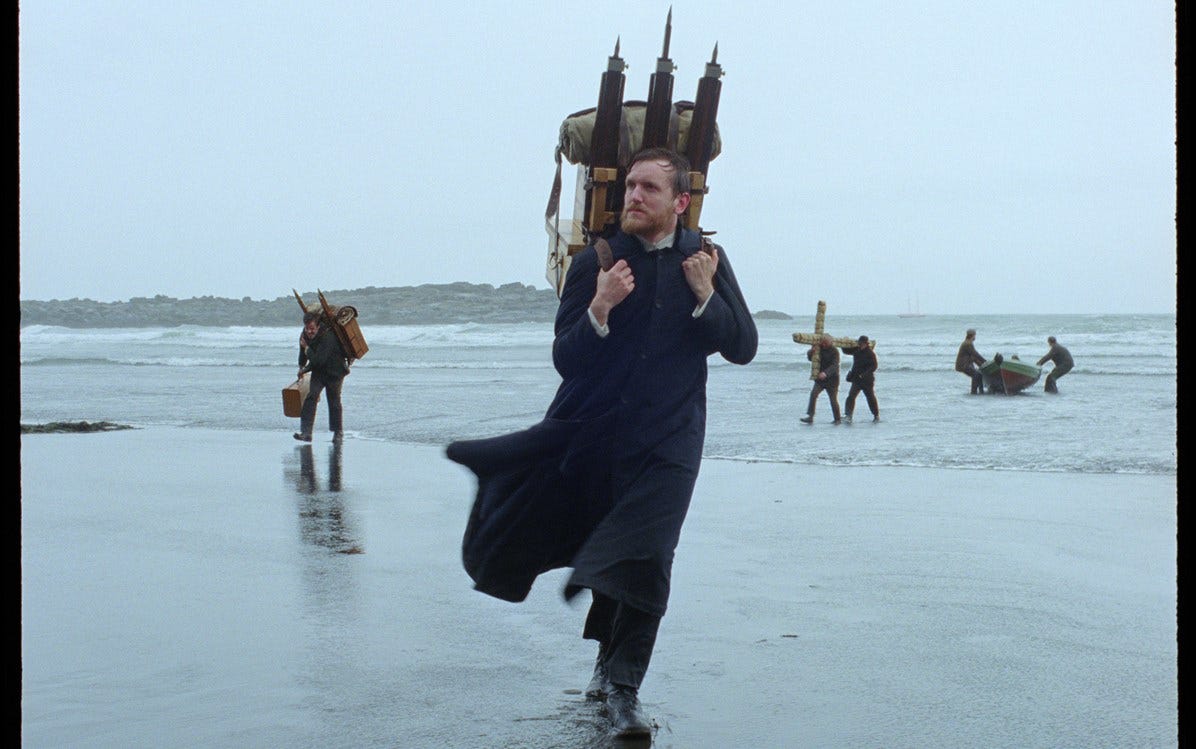Viennale Diaries: Day 2
Two back to back films from two different planets.
Close
It’s hard to believe Lukas Dhont is only thirty one years old. His latest film Close, which had its world premiere in official competition at Cannes but weirdly won nothing, makes its director look at least fifty. So measured and mature is the direction of a very delicate subject matter that revolves around thirteen year old Leo (Eden Dambrine).
I’ve got no evidence to back me up on this but I’d bet the Belgian-born Dhont is a big Dardenne brothers fan. His movie is a very understated, quietly powerful coming-of-age tale centered around Leo, who is forced to navigate unknown feelings whilst grappling with unspeakable tragedy. It’s the kind of movie the Dardennes wish they could still make (if the heavy-handed Tori and Lokita is anything to go by).
Everything about Close feels hyper-realistic even while it’s shot as if the camera were dipped in honey, such is the warmth of the glow that imbibes every frame. The dialogue feels unscripted, the performances all natural and non-actory (even a quiet dinner scene that ends in tears feels heartbreakingly all too real) and the overall message of how we cope with grief and loss, and accepting responsibility, is an immeasurably important life lesson.
There is something that still irks me about the resolution between Leo and Sophie (a truly superb Émilie Dequenne). The trouble with slice-of-life movies is they slice from life, playing by life’s rules, so when a decision or an action goes against the spectators’ own life philosophy, it’s to the film’s detriment. There are a couple of unsaid things that I feel like needed to be said in Close, making the conclusion a bit skinny and lacking.
Minor quibble aside, this is an exceptionally crafted film and I’ll be keeping my eyes and ears peeled on whatever Mr. Dhont does next.
Godland
Jumping from Dhont’s realistic modern day Belgium to Hlynur Pálmason’s surrealistic 19th century Icelandic escapade was not a little disorienting. It’s been a big reminder of what it’s like to need to recalibrate your brain in between back to back screenings at film festivals. Fortunately Godland is so strikingly different in every conceivable way from Close it didn’t take long before I was sucked in.
Full immersion happened probably around the time an elder priest was telling the film’s protagonist priest, Lucas (Elliott Crosset Hove), about how the smell of a volcano makes it seem like the Earth shat its pants. It’s a great line, and made all the more effective thanks to how far out of left field it comes.
This ends up being pretty much a signature for Godland - everything comes out of left field. An oddity of a film about a Danish priest’s exploration of Iceland as he attempts to build the first church and introduce Icelandic people to God, inspired by the first known photographs taken of the country. It’s a mixture of dry and droll dreariness, and as fascinating and bleak as an extenstionalist’s birthday party.
You start feeling the 2+ hour running time towards the end, but the mixture of Maria von Hausswolff’s cinematography and the 4:3 aspect ratio make as if you’re watching remnants of a post-apocalyptic past told from a far away future. The scenery and the Herzogian storyline is absorbing as hell, and if nothing else, it convinced me that molten rock and lava is one of the most compelling things to capture on camera. I could watch that stuff for days.
As accomplished as the production is on all fronts (Ingvar Sigurdsson’s turn as the guide Ragnar is a particular stand out), and as interesting as its nihilistic philosophy is to ponder, I do feel that Pálmason did not make a universal movie. He made a Scandinavian movie, particularly for Icelanders and Danish people. The two languages and their differences are central themes, and the Danish anthem which closes the curtains made me feel like I’m missing a trick or two here.



